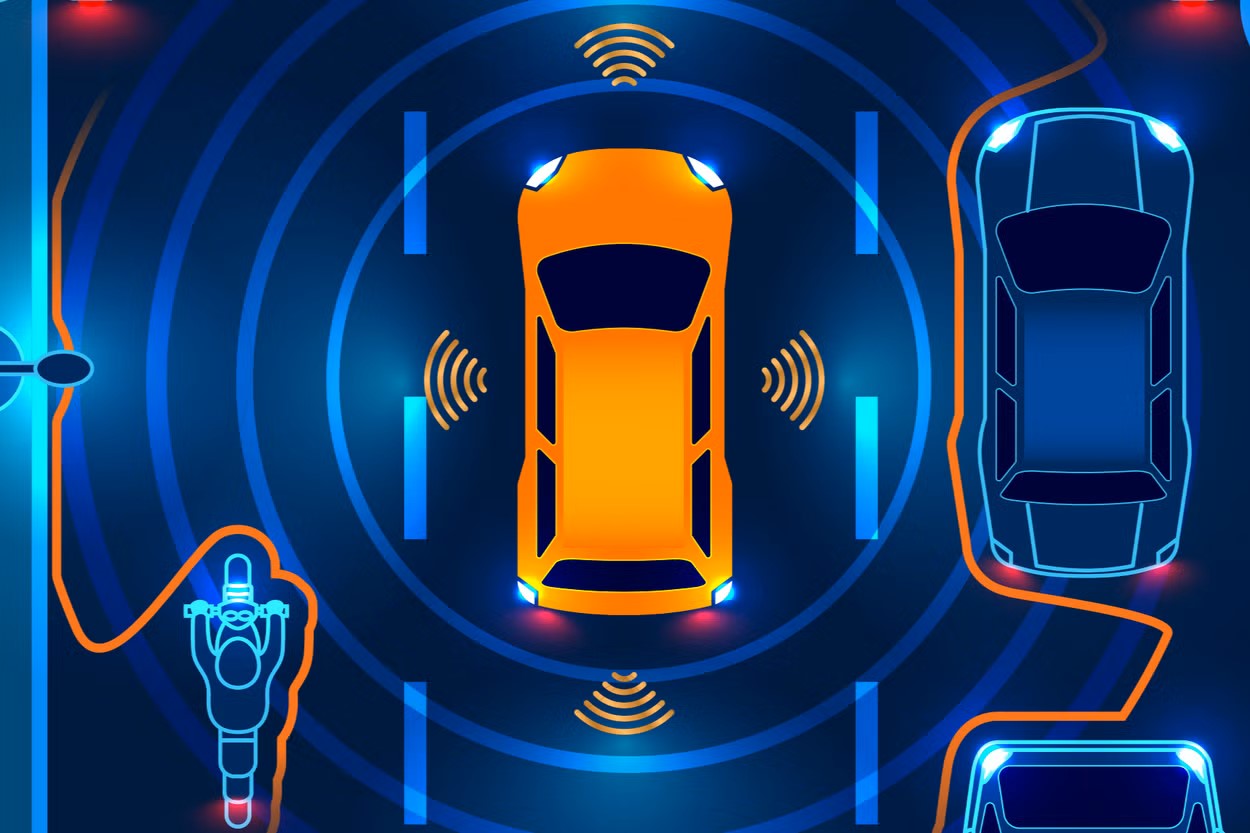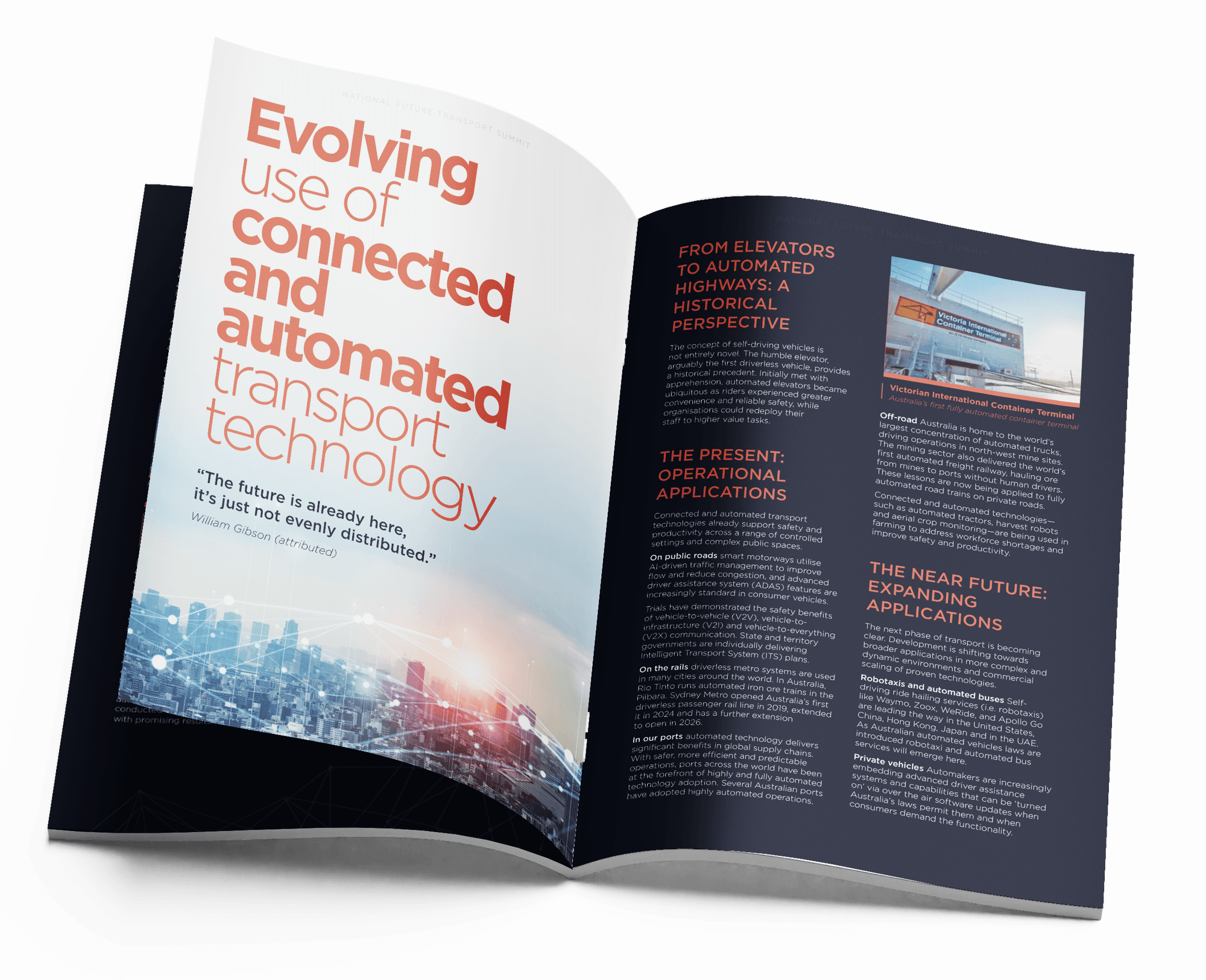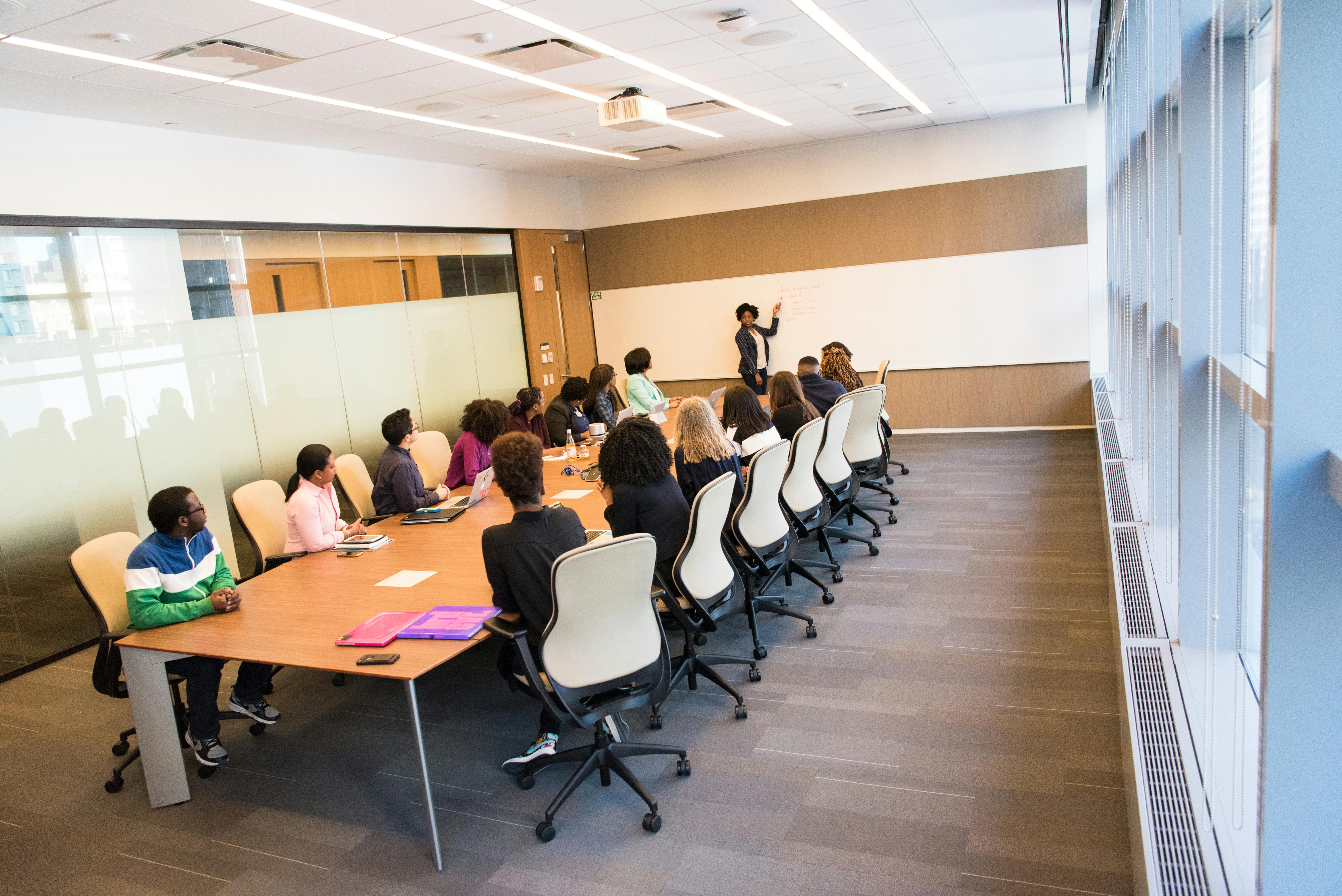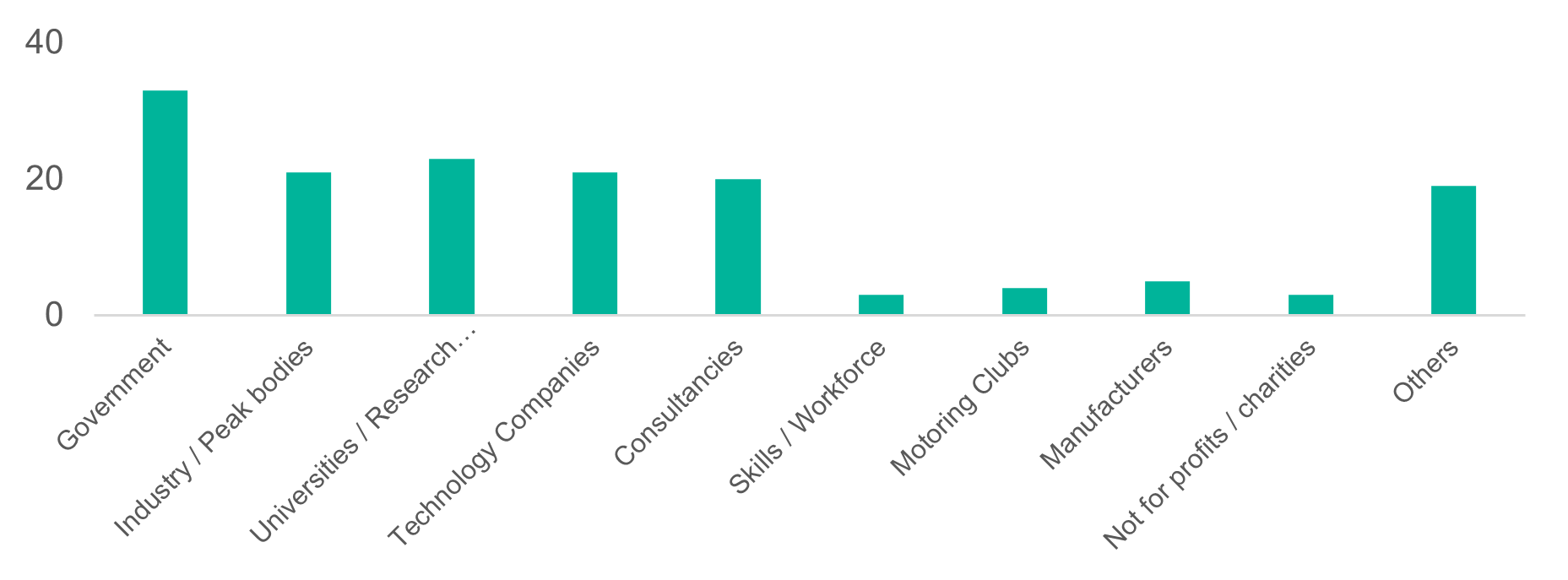
An extensive consultation process has engaged transport experts, industry leaders, government representatives, community voices and researchers to explore how connected and automated transport can improve safety, maximise productivity, support sustainability goals and enhance social outcomes.

Supported by a landmark collaboration of more than 100 organisations who make up the Summit Consortium, the consultation process commenced with the publication of the National Future Transport Summit Discussion Paper on 30 May 2025. With direct contributions from more than 30 individual experts and informed by feedback from the consortium, this Discussion Paper outlines the opportunities, challenges and policy considerations for the future of connected and automated transport in Australia. This Paper served as the foundation for national engagement across the Summit's five core themes: Safety, Productivity, Sustainability, Infrastructure and Social Legitimacy.

To support the consultation process and encourage feedback from across the country, CCAT hosted a series of consultation workshops, bringing together diverse perspectives on the key issues facing Australia's transport transformation. The five workshops held over June and July 2025 attracted 152 registrations from local, state and federal governments, universities, industry and technology sectors. The chart below demonstrates the broad participation across these sectors and organisations.

The first workshop of the series featured a comprehensive presentation of the national imperatives, visions and themes of the Summit. CCAT’s Executive Director, Brook Hall, presented an overview of the purpose and process for the consultation, with guidance and support to encourage community and industry representatives to have their say on the future of transport in Australia.
The first theme-focussed workshop featured expert insights from Sam Gray (Transurban), Amit Trivedi (Queensland Department of Transport and Main Roads) and Isobel Pastor (Suburban Rail Loop Authority). Key takeaways included the need to balance physical and digital infrastructure investments, recognition that productivity benefits extend beyond transport efficiency to freight, workforce participation and urban planning, and support for flexible, standards-informed approaches that enable innovation while maintaining safety and equity.
Dr Ingrid Johnston (Australasian College of Road Safety) highlighted both the promising opportunities and risks in adopting connected and automated vehicle technologies, emphasizing the need for careful implementation during the transition to mixed-fleet environments. Industry perspectives from Nikesh Murali (NRMA), David Elston (RAC WA) and Claire Thompson (WA Department of Transport) addressed the urgent need for advanced driver assistance deployment, regulatory challenges, and Australia-specific considerations including cybersecurity, driver engagement, and the importance of proving safety benefits through accessible, independent data.
Susan Harris (ITS Australia) outlined growing transport emissions and the need for integrated sustainability planning, while Dr Adele Lausberg (Heavy Vehicle Industry Australia) discussed the unique challenges of decarbonising heavy vehicles. Ben Haddock (Arup) advocated for broader sustainability definitions encompassing equity, nature and liveability. Participants identified four major challenges: increased vehicle travel risks, lack of strategic integration between decarbonisation and emerging technologies, uncertainty in electrification-automation interplay, and heavy vehicle decarbonisation difficulties.
Douglas Spencer-Roy (EastLink) shared insights from Australia's longest-running public attitude studies on vehicle technologies, demonstrating how trust evolves through experience and visible progress. Luke Wilcock (City of Joondalup) emphasised local government's role as trusted intermediaries, while Jonathan Van Leeuwen (AUSMASA) highlighted the crucial link between workforce capability and public confidence, stressing the need for early planning and national coordination for workforce readiness.
In total, 13 formal submissions were received from a range of government agencies, industry stakeholders, research organisations and advocacy groups.
These submissions, alongside feedback gathered through the Consultation Workshops and consortium discussions, inform development of the draft Recommendations for consideration at the National Future Transport Summit event in September 2025. The organisations represented by the submissions are:
The submissions received as part of the National Future Transport Summit Consultation will be published in full on the Summit webpage along with the Consultation Outcomes Report.
The consultation process has generated valuable insights that will inform the Summit's development of a national blueprint for connected and automated transport. Workshop summaries and key findings are publicly available via the Summit website.
"The Summit's ultimate goal is to deliver a blueprint to government for Australia's transport future that is inclusive, innovative, and aligned with the real-world needs of Australians," said Brook Hall, Executive Director of CCAT. "This consultation process has been about building a shared vision for how emerging transport technologies can improve lives and support a thriving, equitable economy."
The National Future Transport Summit will bring together this diverse coalition of stakeholders to finalise recommendations that reflect the comprehensive consultation and expert insights gathered throughout this engagement process.
For more information and to register for the Summit, visit here.